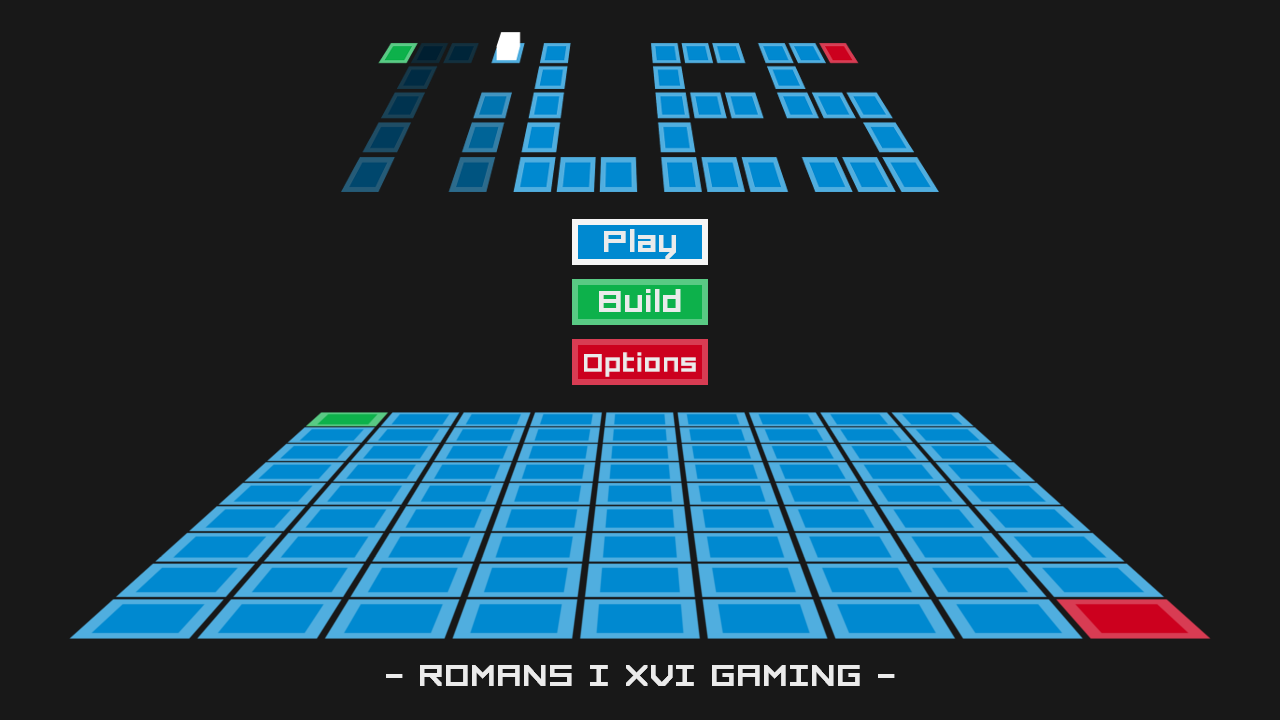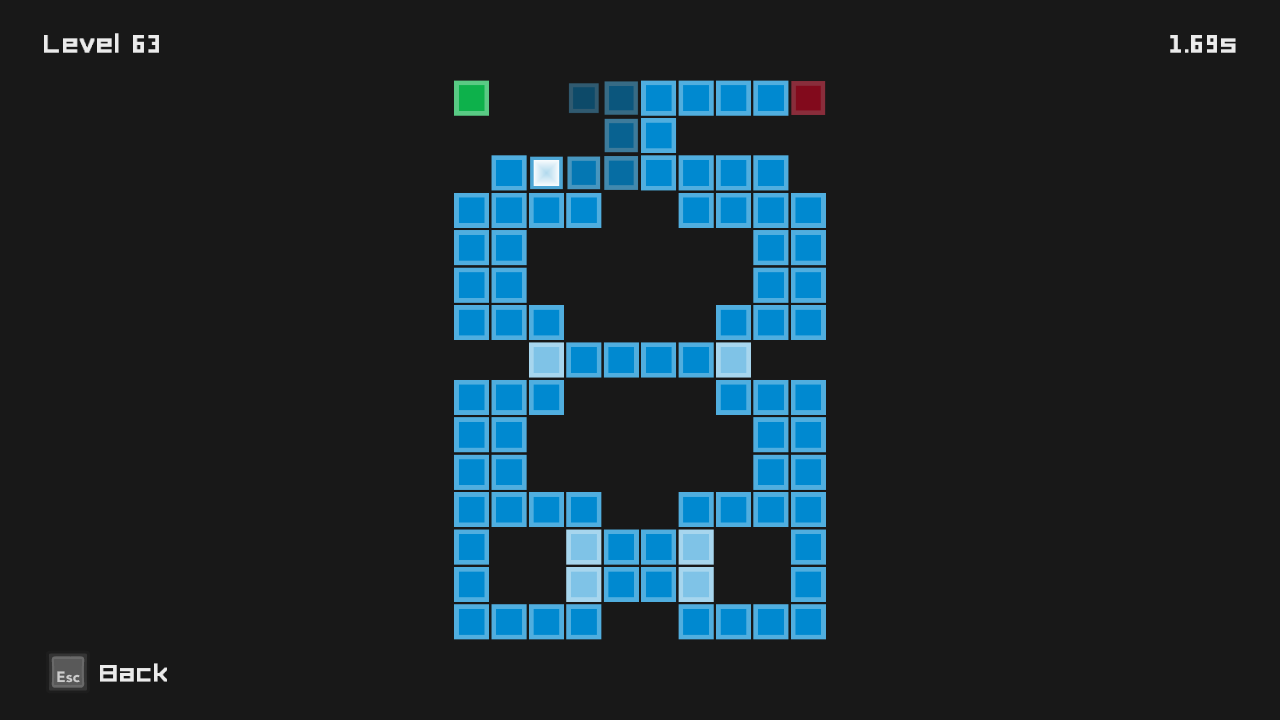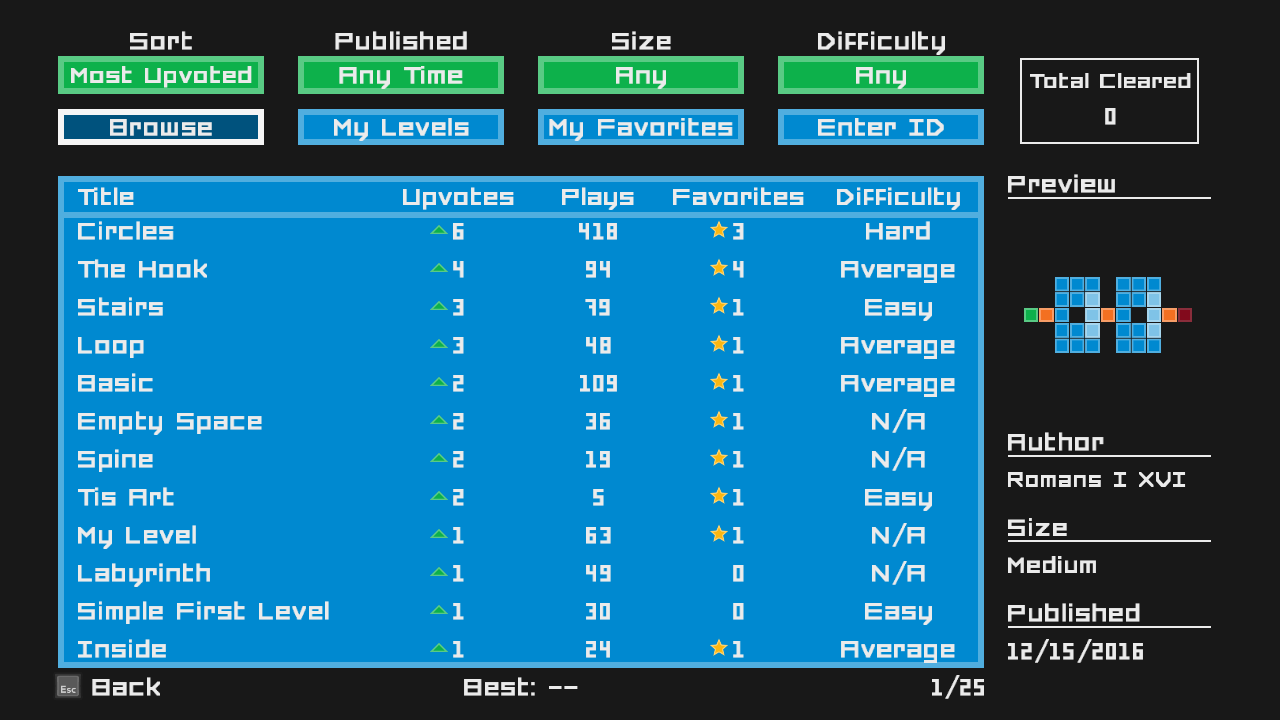When it comes to small, independent puzzle games, the simpler you make it, the easier it is for casual players to get invested in it. That’s not to say you can’t have hidden layers of complexity; in fact, you should go for that, just like the Tiles does.
Developed and published by Romans I XVI Gaming, Tiles is an action puzzle game that gets harder each time you pass a level. You’re often introduced to new mechanics and new level designs each time you play, and the only penalty for losing is that you have to start off from the very beginning of the level. Of course, that sounds like a minor penalty, but once you get into the more difficult aspects of the game, it can be absolutely soul-crushing when you only have one tile to go.
The object of each level is to clear all the tiles in the stage and then head back to the main red tile to complete the level. This sounds very simple, but there are so many ways you can be tripped up in Tiles that each level is a unique challenge on its own. You’re required to think ahead before you make your actions, which is nice to see, and since the timer is only useful for bragging rights (rather than causing you to fail or die), it’s nice to have a second to think things through.
Each successful navigation leaves you with a sense of accomplishment that you’ve conquered a new puzzle. There is a level editor that allows you to play other players’ levels, as well as build your own. These range from any level of difficulty you want. That means you can take inspiration from the levels within the game or perhaps diversify yourself and make an incredibly difficult level entirely of your own sadistic design.
I find that the game can get tedious after a while, and playing for extended amounts of time isn’t advised. This is the sort of game you need to pick up and play occasionally, then take a break for a few hours or so. This might be alleviated with more incentives to progress, like unlocking more music tracks or customizing your main block a little in order to change things up on occasion, but these are more suggestions than actual complaints.
There are small issues in regards to control, depending on if you use controller or keyboard that do need to be addressed, since I don’t think were intentional difficulty increases. When using the controller, there are times where things will feel far too slick; a slight movement can send you sliding off one step too many in any direction which, for those tighter puzzles, can lead to some controller gripping moments of frustration. By this logic, you’d think the keyboard controls are perfect right?
Well, they are considerably more accurate and easier to use than the controller, but there seems to be a very slight delay with the input that can be just enough to make those timed disappearing block puzzles in Tiles late game an absolute pain to get through. It’s not enough to ruin your experience – truly none of the flaws in the games are enough to ruin this game – but it’s enough to sour it ever so slightly.
Overall, Tiles is a well-functioning puzzle game that, while not for everyone, is bound to make people who enjoy puzzle games happy.
Note: A review copy of the game was acquired from the developer.













Published: Mar 30, 2017 1:47 PM UTC